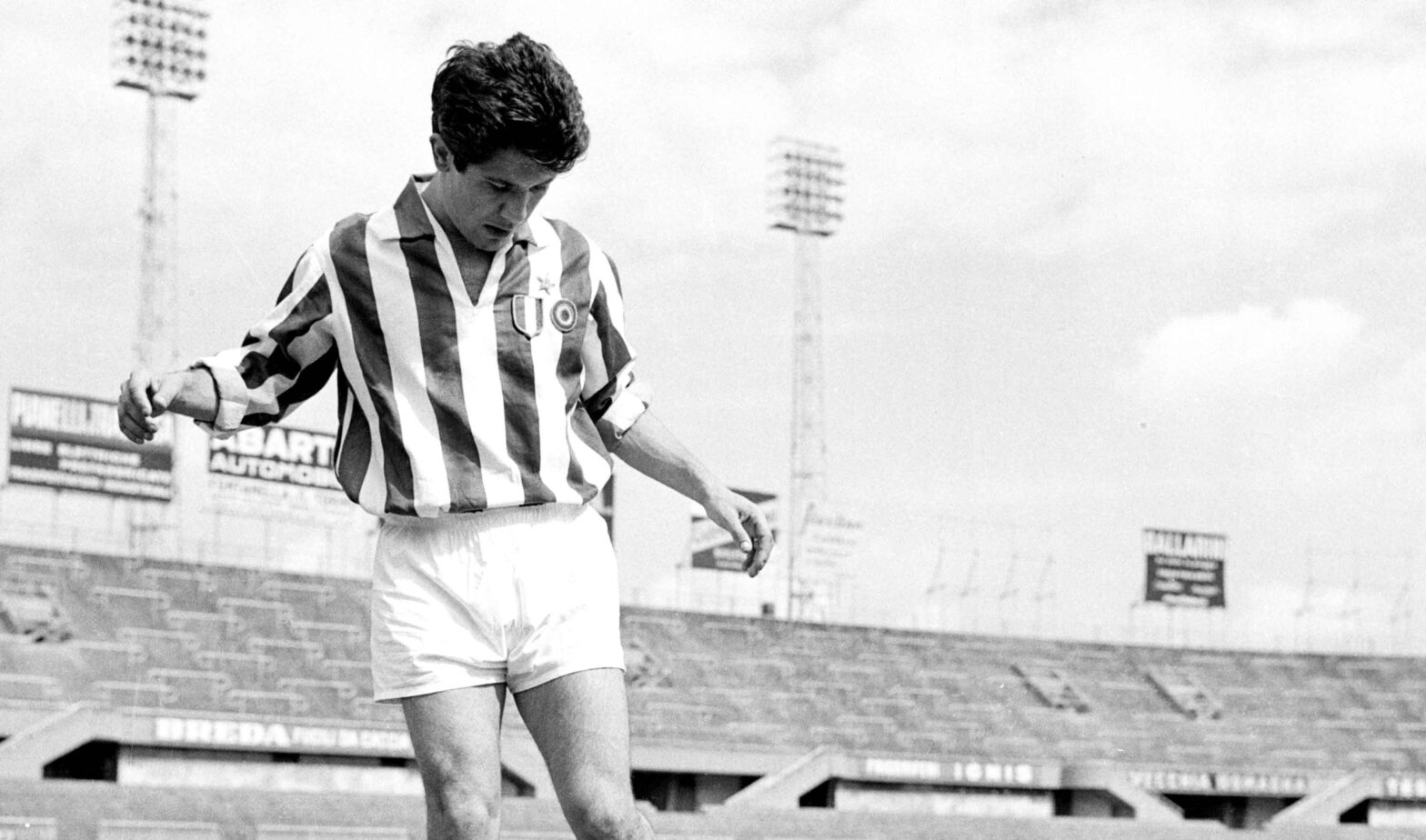In 1957, Juventus opened their cheque book and signed Argentinian inside forward Omar Sívori for a world record transfer fee, remunerating River Plate with a staggering ten million pesos (£91,000).
Italy, now free from Fascism, was experiencing an economic boom; whilst Argentina was still in political turmoil after president Juan Perón had been overthrown in a coup d’état led by the Revolución Libertadora two years previously. The lure of earning a big salary in Italy was still bringing top Argentinian players to Serie A, and the same season saw two other talented Argentines recruited after Antonio Angelillo was signed by Inter and Humberto Maschio by Bologna. Together, the three were nicknamed the “trio of death” thanks to their intrepid attitude and ruthless finishing skills which saw them amass a combined 299 Serie A goals in 660 appearances.
Like the 1934 World Cup Oriundi before them, their Italian heritage allowed them to play for the Italian national team, despite having previously played for Argentina. La Albiceleste; who were in with a good chance of winning the 1958 World Cup after their triumph at the 1957 South American Championship, played without their three heroes who had departed for Italy. The Argentines were duly humiliated in the tournament and the players, regarded as deserters and traitors, were banned from representing Argentina in the future. They went on to be capped for the Italian national side, before the ban on playing for more than one country was imposed not long after.
Insult would later be added to injury when in 1961, Sívori scored twice for Italy in their 4-1 friendly win over Argentina in Florence. Nicknamed Cabezón (big head), Sívori’s personality was as immense as his footballing skill. At Juventus he played in an attacking trident made up of the clubs second all-time top scorer Giampiero Boniperti and Il Gigante Buono (The Gentle Giant), Englishman John Charles. With 167 goals for the Bianconeri, Sívori joins Boniperti among their all-time top scorers, sitting in fifth spot. The prolificacy of this front three led to Scudetto wins in 1958, 1960 and 1961 for the Turin club. Boniperti remembers Sívori’s ‘winning mentality’ fondly, recalling his attempt to show a lack of fear to his opponents by playing with his socks rolled down.
Standing at just 5’5”, Sívori terrorised his opponents with his speed, dazzling ball control and for outwitting his opponents with his penchant for a nutmeg. His sublime skill and dominant displays (he scored six goals in one match against Inter), earned him the European Footballer of the Year award in 1961. This award would not be won by another Argentinian until Lionel Messi was voted winner in 2009. But by then, Sívori was representing his adopted nation of Italy, since he had earned Italian citizenship in the same year.
Often in trouble with referees, his ungoverned personality led to the end of his time at Juventus in the 1964-65 season after he fell out with coach Heriberto Herrera. However, by this time, he had firmly cemented his place in the hearts of the Vecchia Signora faithful. Sívori did not enjoy anything like the same kind of success in his subsequent move to Napoli. He spent four seasons with the Azzuri, ravaged by injury and lack of discipline, letting his fiery temper get the better of him. He was released after his final game; ironically against Juventus, when he was banned for kicking Erminio Favalli.
After the curtain had fallen on his playing career, Sívori became a coach in his homeland of Argentina and even coached the national team between 1972 and 1973. His emblematic status in Italy also saw him play himself in two films; Idoli controluce in 1965 and Presidente del Borgorosso Football Club in 1970. His life sadly came to a premature end when he died from pancreatic cancer in 2005, aged 69. However he has undoubtedly left a unique legacy behind him. His sale from River Plate to Juventus raised enough money for the Argentinian club to build the fourth and final stand of the iconic El monumental stadium in his name.
As an oriundo, he became one of the select few in footballing history that have played for more than one country at international level, and his achievements for Juventus has seen him go down in history as one of their greatest ever players. His short stature, audacious attitude and his brilliance on the field has naturally seen him compared to Diego Maradona, himself an Argentine export who made history in Serie A.

